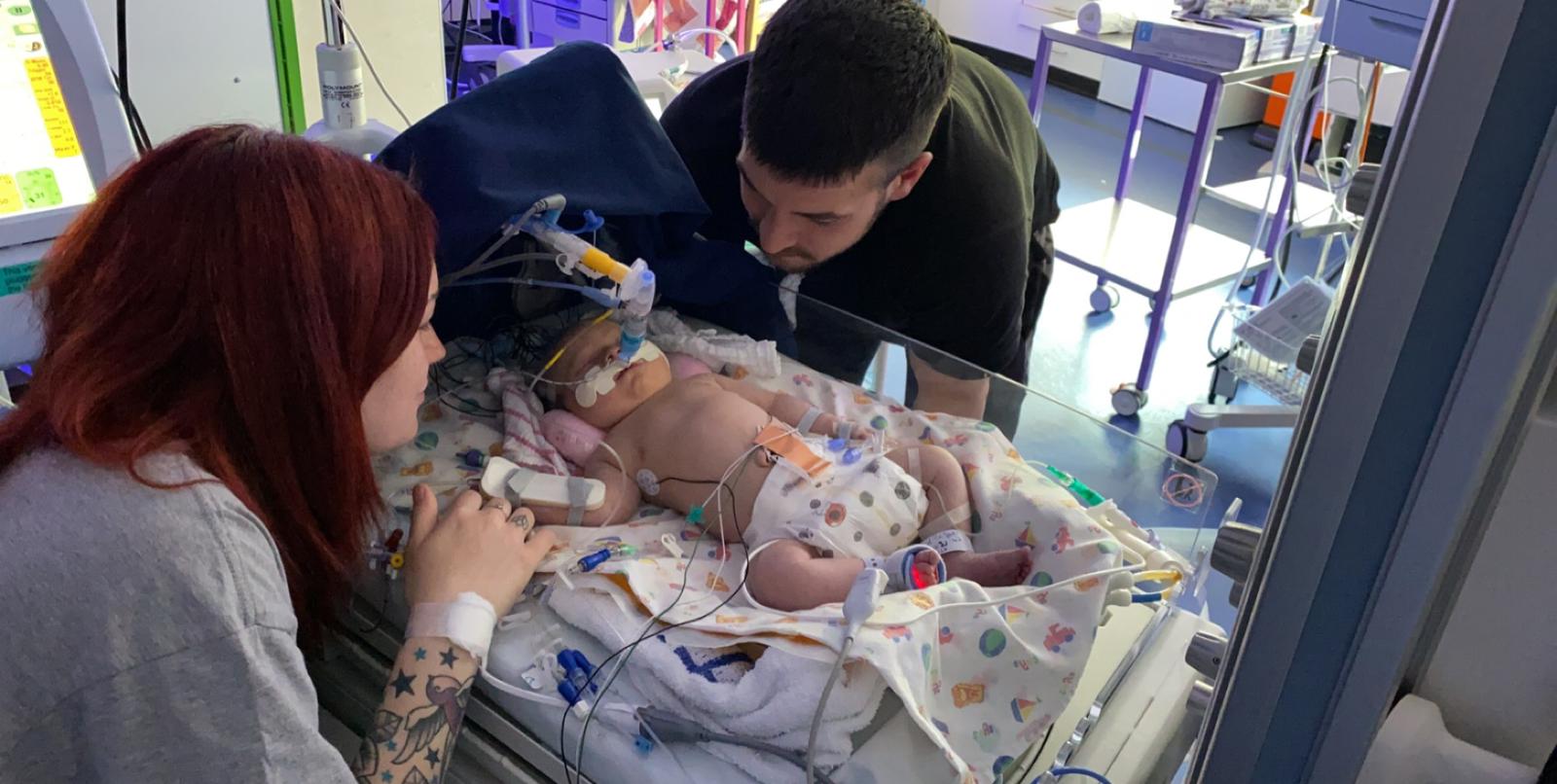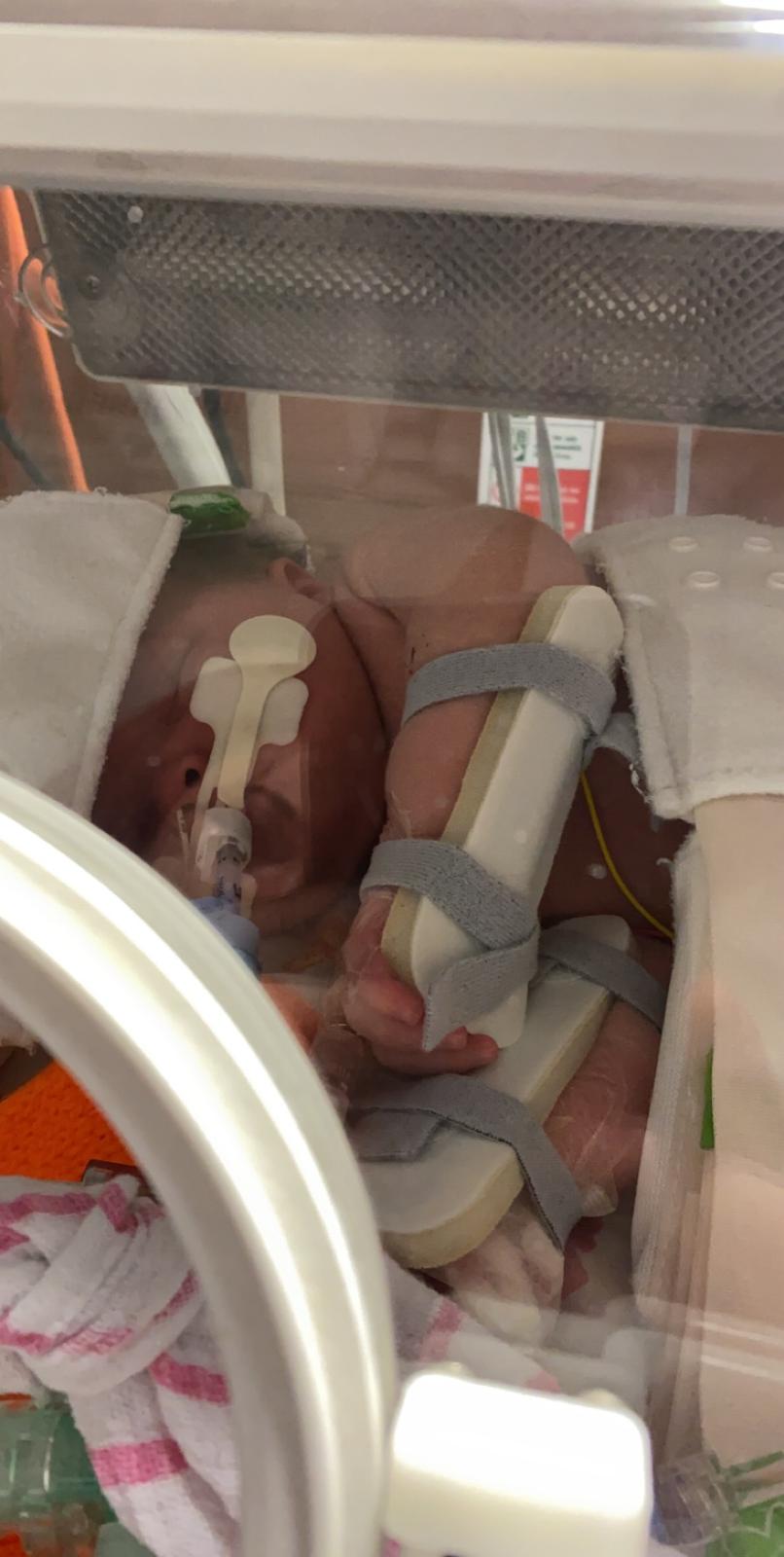Watchdogs issue safety warnings after junior doctors left unsupervised on maternity wards
Exclusive: Arabella Sparkes was born ‘white a floppy’ and died 17 days after her birth following failings by Devon hospital

Your support helps us to tell the story
From reproductive rights to climate change to Big Tech, The Independent is on the ground when the story is developing. Whether it's investigating the financials of Elon Musk's pro-Trump PAC or producing our latest documentary, 'The A Word', which shines a light on the American women fighting for reproductive rights, we know how important it is to parse out the facts from the messaging.
At such a critical moment in US history, we need reporters on the ground. Your donation allows us to keep sending journalists to speak to both sides of the story.
The Independent is trusted by Americans across the entire political spectrum. And unlike many other quality news outlets, we choose not to lock Americans out of our reporting and analysis with paywalls. We believe quality journalism should be available to everyone, paid for by those who can afford it.
Your support makes all the difference.Two health watchdogs have issued safety warnings after junior staff were left to work unsupervised on maternity wards previously criticised after a baby’s death.
Training regulator, Health Education England (HEE), criticised the “unacceptable” behaviour of consultants who left junior doctors to work without any superiors at South Devon and Torbay Hospital Foundation Trust’s wards.
The maternity safety watchdog Healthcare Safety Investigation Branch (HSIB) also raised “urgent concerns” over student midwives and “unregistered midwives” providing care without supervision.
The latest criticism comes after the trust was condemned over the death of Arabella Sparkes, who lived just 17 days in May 2020 after she was starved of oxygen.
Data published in January by NHS resolution shows the trust paid out more than £500,000 for damages claims related to poor obstetric claims in 2020-21.
Have you been impacted by this story? email rebecca.thomas@independent.co.uk
According to a report from December 2022, seen by The Independent, the HEE was forced to review how trainees were working at the trust’s maternity department after concerns were raised to the regulator. It was the second visit carried out following concerns about the department, and reviewers found there had been “slow progress” against concerns raised a year earlier.
Issues included the “quality of patient care”, criticism that junior doctors were “working without consultant input”, were left to train each other, and no proper processes in place for medics to hand over patients.
The report also found “unacceptable” behaviour from consultants. In one example, a consultant refused to assist a junior doctor when asked for help as they deemed the help was not needed.
Concern over consultants’ wellbeing was also raised due to “recruitment issues” and low levels of senior staff in comparison to other units in the region.
According to the trust’s board papers for January, there has been a “high level” of long-term sickness among its consultant obstetric workforce which has placed pressure on its remaining staff. The trust also said there had been a “sudden increase” in sickness among its junior doctors.
HSIB sent its “urgent escalation notice” to the trust in October 2022 raising “significant safety concerns”, triggered by a maternity harm case it had investigated. The notice related to a lack of support for trainee midwives.
It asked leaders to immediately address concerns around the supervision of students, the escalation of care concerns and “duty of candour” which requires NHS staff and organisations to be honest with a patient when something goes wrong with their care.
The trust, however, said HSIB had since confirmed it had addressed the issues raised and said its maternity department was rated “good” overall.
The news comes amid national challenges with shortages across midwifery services. Between October 2021 and 2022, the NHS lost 200 midwives according to statistics. According to a survey by the Royal College of Midwives, more than two-thirds of midwifery leaders reported difficulties in recruiting and also ensuring their midwives were able to take breaks or leave work on time.
Born ‘white and floppy’
Tia and Blaze Sparkes’ daughter Arabella died just 17 days after she was born in May 2020 following a series of failings by Torbay and South Devon.
An HSIB investigation, seen by The Independent, found Arabella was born “completely white and floppy with no heart rate or breathing”.
The report found clinicians were not trained to use equipment to monitor a baby’s heart rate and as a result, issues were not noted, escalated or reviewed by obstetricians as is protocol.
There were also delays in getting Ms Sparkes to theatre for an emergency caesarean. As a result, it was 50 minutes before clinicians first noticed Arabella’s heart rate had slowed.
In the weeks before her labour, Ms Sparkes had attended hospital multiple times reporting reduced baby movements.
An inquest concluded there was a delay in giving Ms Sparkes a C-section which resulted in her brain being starved of oxygen.
Ms Sparkes told The Independent, that no one had communicated her care plan to new staff.
“If staff had spoken to someone more senior, I would not have been sent home and I would have been induced and had a C-section.”
“They tried to blame Covid but it was not because they were understaffed, it’s because they didn’t care or know what they were doing. They weren’t trained properly.
“I feel Torbay hasn’t looked into enough there is good care there but there are stories like Bella’s which are hidden.”
She added once midwives realised Arabella’s heart rate was dropping, they were “incredible” and acted quickly but everything that led to that was a failure.

Liz Davenport, chief executive of the Torbay and South Devon NHS Foundation Trust, said: “We have reviewed the issues raised in the Health Education England report, implemented a number of changes and we are auditing the results.
“Following receipt of the letter from the HSIB around concerns regarding support for learners in practice, we put a number of actions in place which have provided assurance to the satisfaction of the HSIB.
“The circumstances surrounding Arabella’s tragic death remain a source of deep regret for us. We apologise unreservedly for the distress caused as a result."


Join our commenting forum
Join thought-provoking conversations, follow other Independent readers and see their replies
Comments